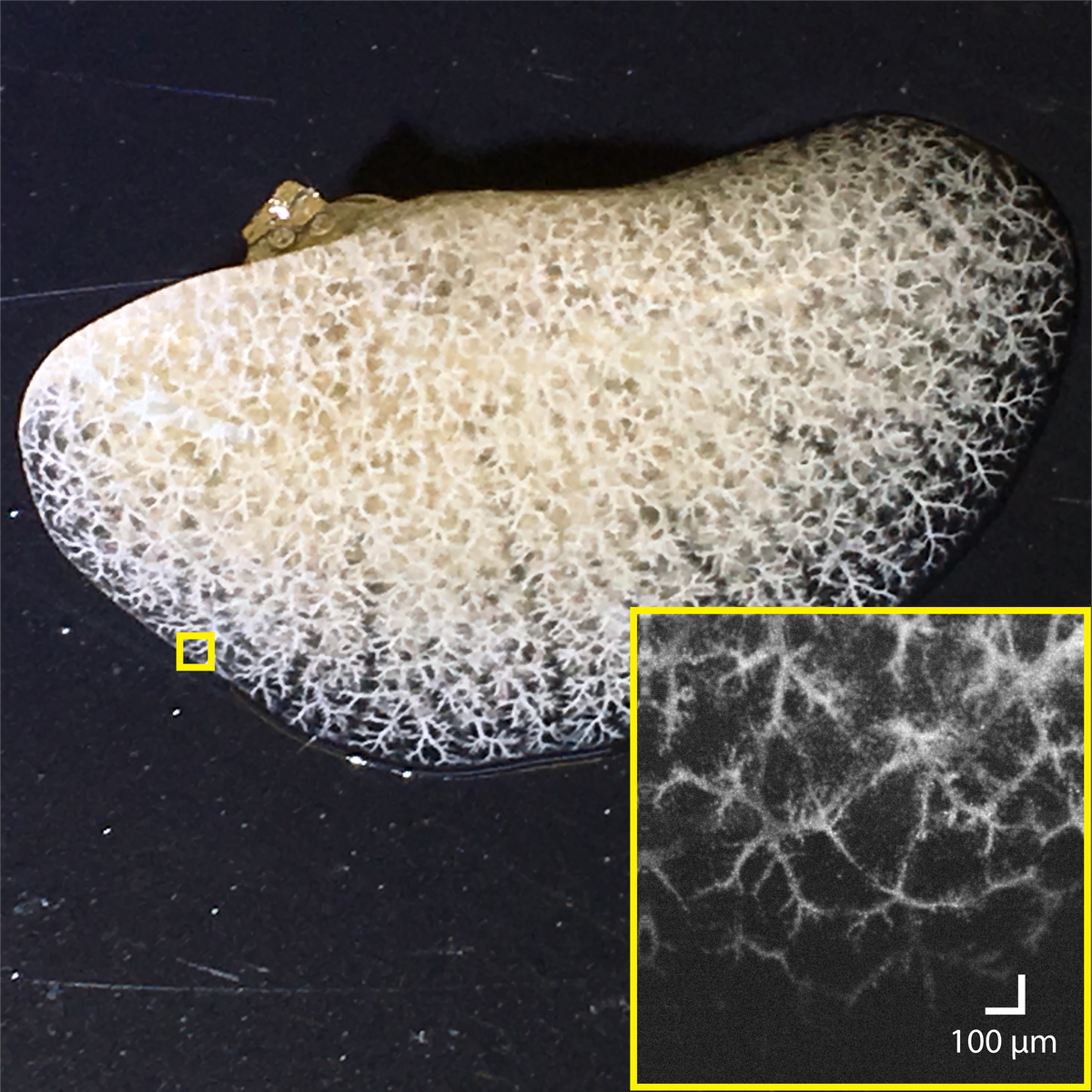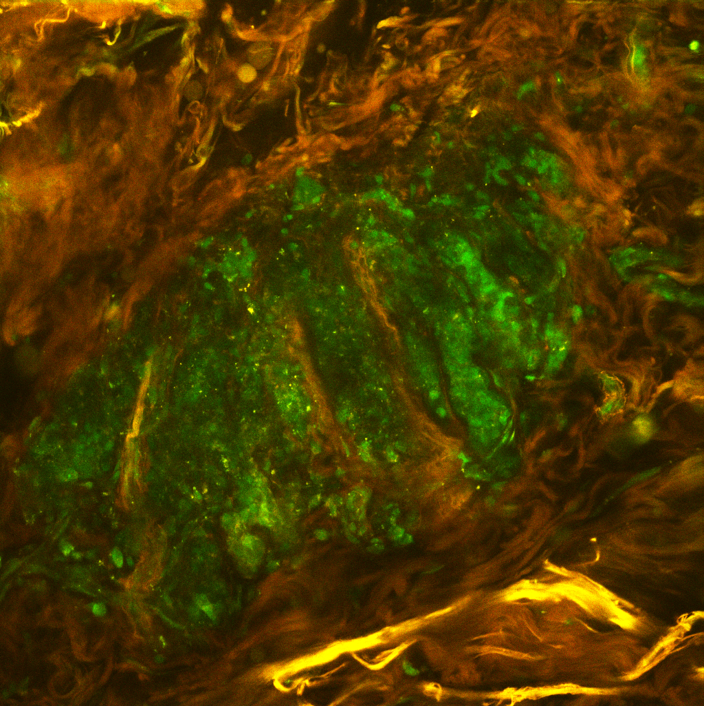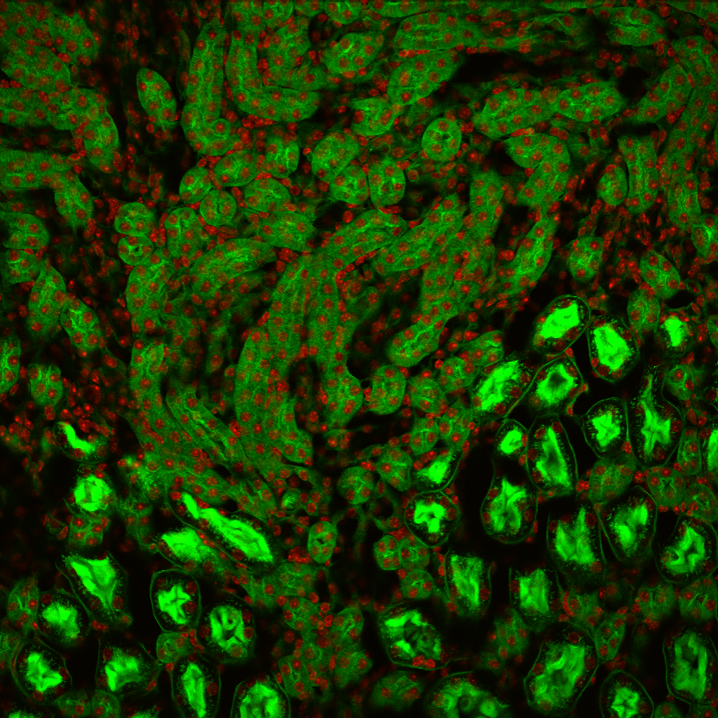 Technological innovations in optics over the last century, including advances in microscopy and laser sources, have enabled unprecedented access to the structure and function of cells and tissues in living organisms. Optical methods are particularly attractive for biomedical applications because they allow for noninvasive interrogation of in vivo tissue
Technological innovations in optics over the last century, including advances in microscopy and laser sources, have enabled unprecedented access to the structure and function of cells and tissues in living organisms. Optical methods are particularly attractive for biomedical applications because they allow for noninvasive interrogation of in vivo tissue  morphology, biological dynamics, and disease pathogenesis. The interdisciplinary nature of Biomedical Photonics research at Vanderbilt combines expertise and resources from Biomedical Engineering, Electrical Engineering and Computer Science, and Chemistry to address clinical challenges. Active research areas include development of novel instrumentation for diagnostic imaging and therapeutic guidance, spectroscopic
morphology, biological dynamics, and disease pathogenesis. The interdisciplinary nature of Biomedical Photonics research at Vanderbilt combines expertise and resources from Biomedical Engineering, Electrical Engineering and Computer Science, and Chemistry to address clinical challenges. Active research areas include development of novel instrumentation for diagnostic imaging and therapeutic guidance, spectroscopic analysis of endogenous and exogenous contrast mechanisms, next-generation microscopy technologies, and functional stimulation and inhibition using light-tissue interactions. Our goal is to leverage fundamental understanding of optical phenomena and novel photonics tools to expand our understanding of disease processes and guide novel clinical interventions.
analysis of endogenous and exogenous contrast mechanisms, next-generation microscopy technologies, and functional stimulation and inhibition using light-tissue interactions. Our goal is to leverage fundamental understanding of optical phenomena and novel photonics tools to expand our understanding of disease processes and guide novel clinical interventions.
BME Core Faculty in Biophotonics
- Audrey Bowden
- Daniel Gonzales
- E. Duco Jansen
- Anita Mahadevan-Jansen
- Yuankai (Kenny) Tao
BME Affiliated Faculty in Biophotonics
- Justin Baba
- Bryan Millis
- Pratheepa Rasiah